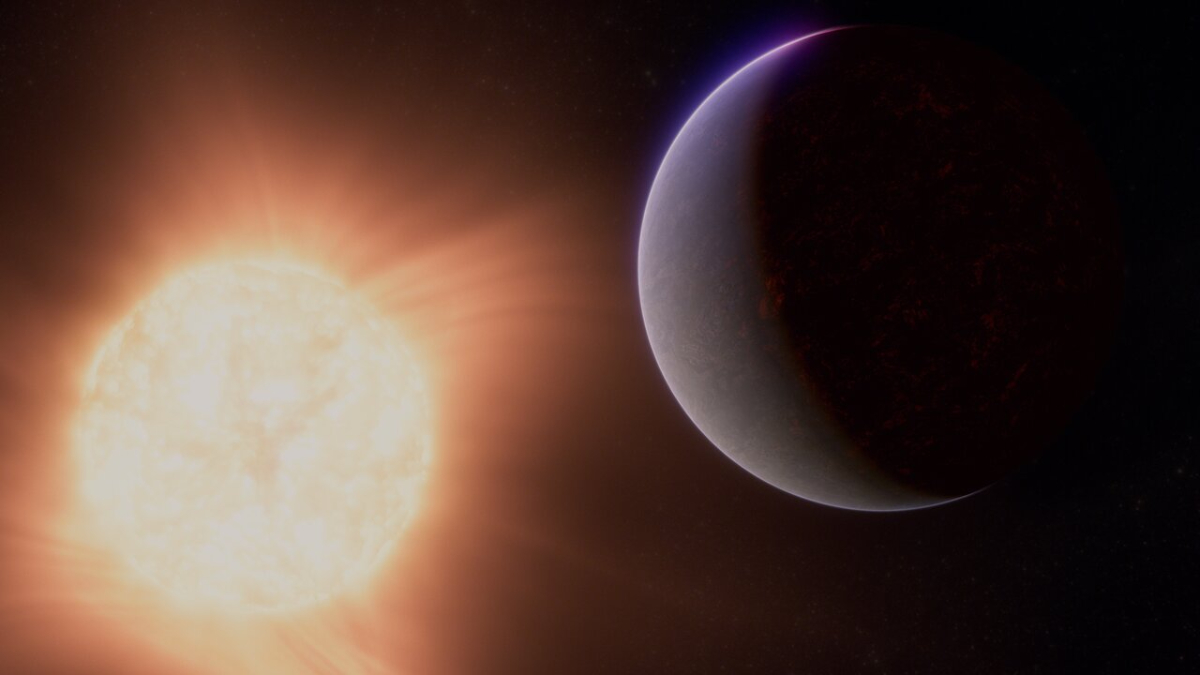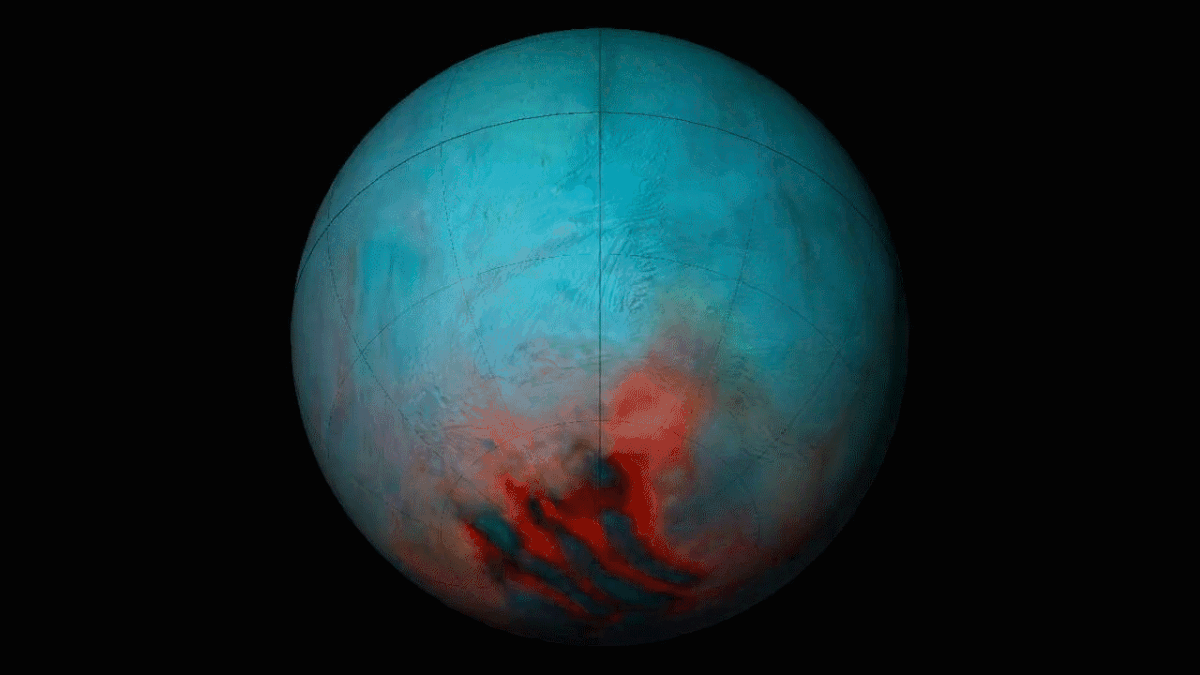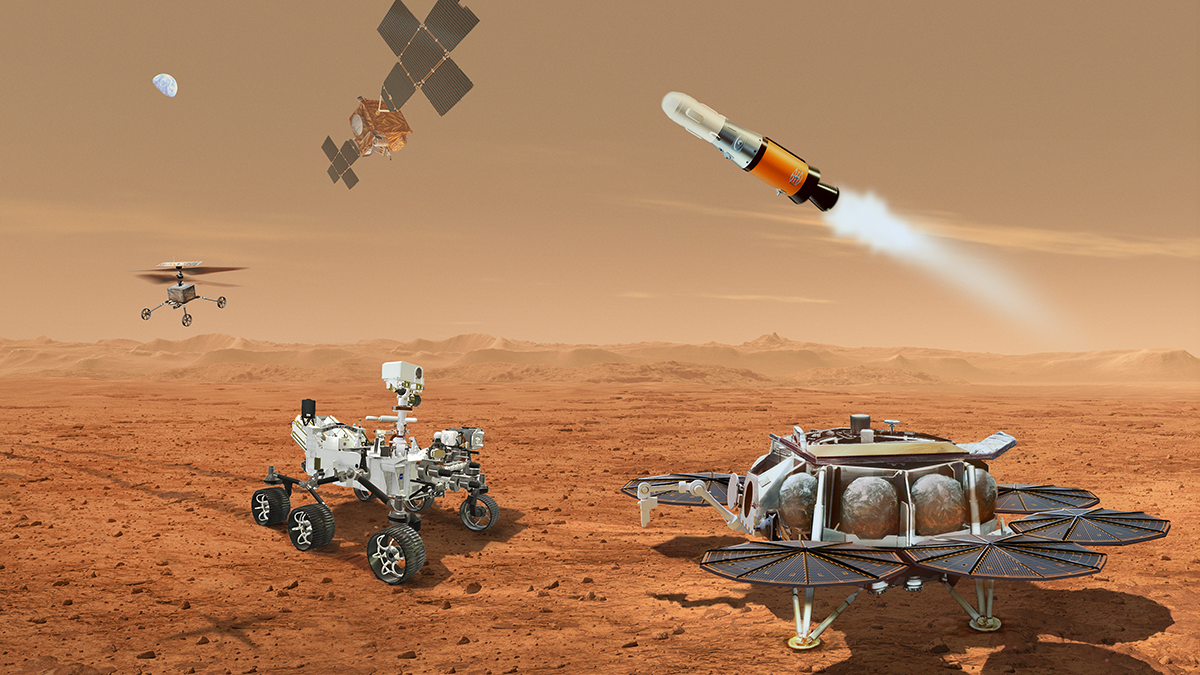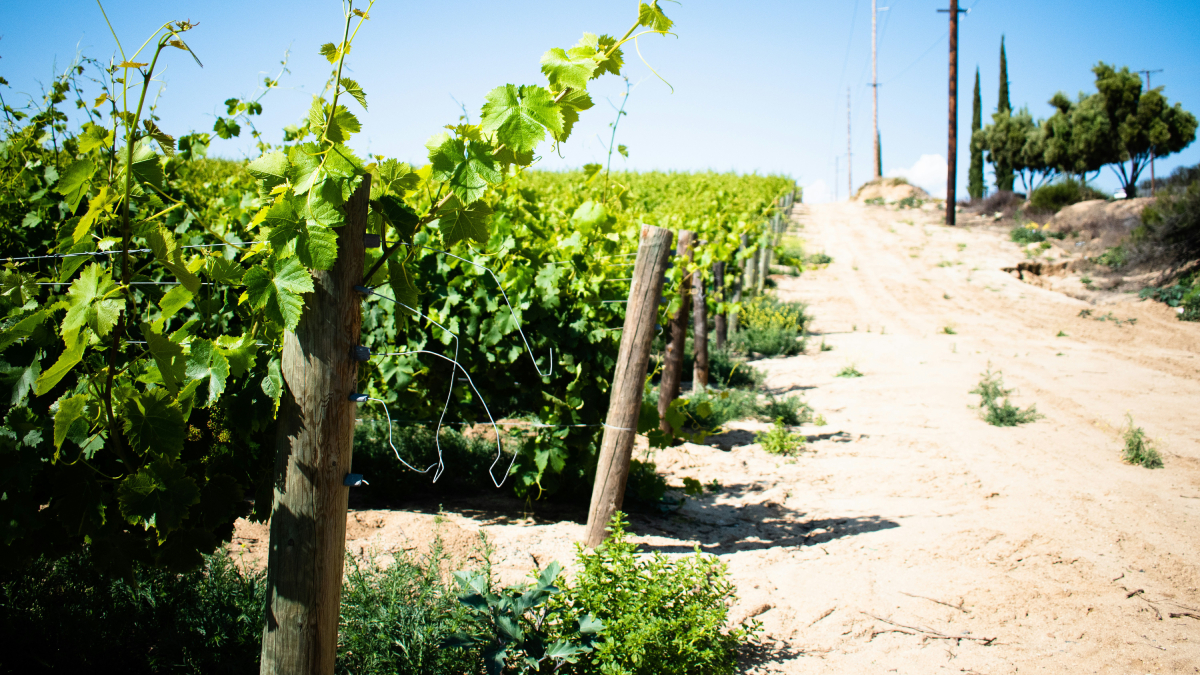The annual event has grown from a viral hashtag to a global uplifting of Black experiences with space.
Kimberly M. S. Cartier
Kimberly M. S. Cartier, Senior Science Reporter for Eos.org, joined the Eos staff in 2017 after earning her Ph.D. studying extrasolar planets. Kimberly covers space science, climate change, and STEM diversity, justice, and education
A Magma Ocean Fuels This Exoplanet’s Atmosphere
The finding is an atmospheric first for astronomers but not for the planet.
Strike-Slip Faults Could Drive Enceladus’s Jets
The back-and-forth motion could also reshape surface geology at the moon’s south pole.
Mars Mission’s Monetary Roller Coaster Hits New Lows
In February, the NASA research center laid off more than 500 people, citing congressional budget uncertainties over the controversial Mars Sample Return mission. What is its path forward?
Climate Change Threatens 70% of Winemaking Regions
In regions where natural resources are scarce or economies depend on producing certain wines, adapting and diversifying grape crops is easier said than done.
Radioamadores Foram Usados Para Obter Informações sobre a Ciência Ionosférica Durante o Eclipse
Operadores de rádio amadores que estudam a física espacial e a atmosfera superior investigaram a resposta da ionosfera ao eclipse solar anular de 2023 usando transmissões de ondas curtas.
Rare “Glory” Possibly Seen on Exoplanet’s Horizon
This rainbow-like atmospheric phenomenon depends on a very specific set of circumstances. It is common on Earth and incredibly rare beyond it.
Tatooine, Trisolaris, Thessia: Sci-Fi Exoplanets Reflect Real-Life Discoveries
After astronomers discovered exoplanets wildly different from Earth, exoplanets in science fiction became less Earth-like, too.
American Samoa’s Sinking Land Speeds Up Sea Level Rise
A new interactive tool is helping residents understand how their lands and homes are at risk.
Passing Stars Shorten Earth’s Time Horizon
Stars in the solar neighborhood could jostle planetary orbits, making it harder to turn back the clock and examine Earth’s orbital or climate history.










